What Is Your Teacher Superhero Origin Story?
By Daniel Bergman
Every superhero has an “origin story.” Whether by fate or mere chance, these characters gain supernatural skills, a sidekick or two, and a noble desire to make things right.
Consider Superman: An alien baby lands on Earth, grows up in Smallville, and uses superhuman strength to champion truth, justice, and a better tomorrow. Compare that origin with Wonder Woman’s: After being raised in literal “paradise,” she leaves her secret island home to help war-torn mankind.
Other heroes have more humble beginnings: Spider-Man—whether Peter Parker or Miles Morales—was an ordinary teenager bitten by a radioactive spider, who then discovers that great power demands great responsibility.
A powerful origin story encapsulates a superhero’s entire premise and purpose. A classroom teacher’s origin story can be equally significant. Unlike superheroes, most of us cannot boast a spectacular start involving lab mishaps or cosmic explosions.
Nevertheless, our origin stories can provide potent insight and inspiration – no matter how long ago we began teaching.
So, where do teachers come from?
Back in my eighth-grade year, our science teacher Mr. Musson used to declare, “Teachers are not born. They just . . . appear.” He would then share a mischievous smile and motion to the school hallway, as if another teacher would magically emerge from a shadowy nook.
Decades later, I still recall Mr. Musson’s quirky sense of humor and anecdotes. Most often, I reflect on my own career path as a science teacher, as well as those of countless educational colleagues. Along with these musings, another question comes to mind.
Are good teachers born or made?
In essence, the issue echoes the eternal “nature vs. nurture” debate. Are successful educators equipped with innate gifts? Or can anybody be a great teacher through learning and hard work? Or does it even matter how you become a teacher?
Each of us could name at least one teacher who is a “natural” in the classroom. These individuals implement high quality instruction with relative ease. They can think on their feet. They are personable, able to connect with students from all walks of life. Plus, they not only know their content, but also how to teach it in meaningful and memorable ways.
In truth, most of us did not acquire such skills naturally. We learned fundamental principles and practiced necessary competencies. Most importantly, we discovered that we can all get better. Even those teachers who appear inherently talented still need to improve and refine their abilities.
About those superheroes
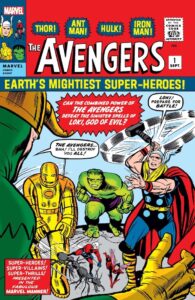
In less than two years, they had introduced the world to the Fantastic Four (November 1961), the Incredible Hulk (May 1962), Doctor Doom (July 1962), Spider-Man (August 1962), Thor (August 1962), Iron Man (March 1963), Doctor Strange (July 1963), the Avengers (September 1963), and more. Breathtaking, right? Each Marvel hero (and villain) had their own origin story and unique path to superpowers.
In 1963, Stan Lee wanted to write about a new team of teenage superheroes. The challenge was finding a fresh catalyst for their creation. How did these young heroes get their powers?
Admittedly, Stan “The Man” solved his problem with the simplest answer: “They were born that way. They were mutants!” (quoted in Hiatt, 2014). This ingenious idea is how we got Cyclops, Marvel Girl, Beast, Iceman, Angel, their mentor Professor X, and ultimately, over a hundred different X-Men (and counting).
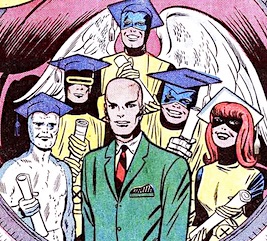
Sounds a little like teachers, doesn’t it?
You and I may not be mutants. Even so, like the X-Men, we must learn, “evolve,” and expand our impact. Teachers who clamor for “lifelong learning,” “grit,” and a “growth mindset” in their students must be willing to pursue these same dispositions (Duckworth et al., 2007; Dweck, 2015; Kaplan, 2016).
This requires serious reflection on instructional practices – individual and institutional – as well as courage to change and creativity to grow. Or as Neil Postman and Charles Weingartner described many years ago, we resist the temptation to “simply move from one side of the desk (as students) to the other side (as ‘teachers’)” (1969, p. 139). Instead, teachers must study their profession, examine wide-ranging effects, and apply credible research.
Our purpose and passion
Beyond powers or prowess, an origin story also imbues the superhero with purpose. The same applies to teachers. Our pedagogical skills and content knowledge will only go so far without passion.
Ask anyone about their reasons for choosing a favorite superhero. Most likely, they will describe more than just the character’s amazing abilities or cool costume. Superman and Wonder Woman are far stronger than any human, but they will protect their adoptive people with everything they have. Anyone wearing a Spider-Man mask must overcome all kinds of obstacles – both personal and superpowered – persevering to help friend and foe alike. A hero’s real impact arises from their actions and attitudes.
Likewise, a teacher’s influence emerges from authentic care for understanding, with earnest compassion toward students, families, colleagues, and community. The responsibility and stakes are a lot to shoulder, enough to cause burnout. But one way to ensure longevity (and legacy) is to cultivate genuine joy for teaching. Or to use a more heroic phrase, we uphold an educational zeal.
Stay focused on your why and how
Every day, our choices and interactions have potential to shape someone’s entire year, even in the toughest times. Especially the tough times! Remind yourself not only why you became a teacher, but HOW. Evoke the struggles and milestones of your origin story. This helps us regard students’ perspectives as we journey through the learning process.
A common by-product of care, joy, and zeal is resonance. A teacher’s passion radiates to others, beyond even time and space. Talk about a powerful origin story! It’s a tale that can begin in every classroom. Let’s start today.
References:
Duckworth, A.L., Peterson, C., Matthews, M.D., & Kelly, D.R. (2007). Grit: Perseverance and passion for long-term goals. Journal of Personality and Social Psychology, 92(6), 1087-1101.
Dweck, C. (2015). Carol Dweck revisits the ‘Growth Mindset.’ Education Week, 35(5), 20, 24.
Hiatt, B. (2014). The true origins of “X-Men.” Rolling Stone.
Kaplan, A. (2016). Lifelong learning: Conclusions from a literature review. International Online Journal of Primary Education, 5(2), 43-50.
Postman, N., & Weingartner, C. (1969). Teaching as a subversive activity. New York: Delacorte Press.
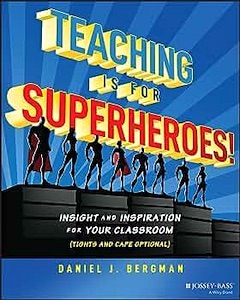
As a fan of science, teaching, and superheroes, he is the ultimate SuperNerd. Contact Dr. Bergman at daniel.bergman@wichita.edu, follow him @DanielJBergman, and learn more at www.danieljbergman.com.

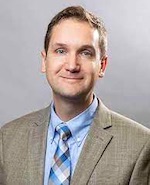
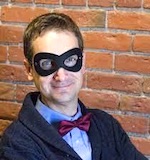






























Dude! yes! I revel in the super hero mythology and believe in the mutant ability to be honed.
Thanks for being the proverbial professor x in your endeavors.
Thanks for sharing your feedback and enthusiasm!
I love your phrase “believe in the mutant ability to be honed” – YES!